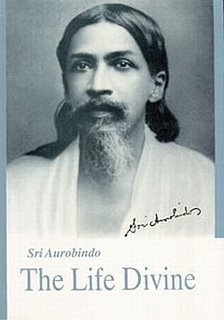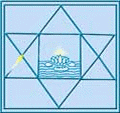 |
Life
Life is cosmic Energy that builds forms and thereafter animates the forms to produce a variegated existence. But this is not enough. Once animated, the dynamics of the form has to be maintained by a continual phenomenon of stimulation. In a progressive universe change is the only thing constant. It is natural therefore that forms have to change and give away to new forms. Sri Aurobindo explains that Life as Energy maintains the dynamics of the form by an ‘unceasing process of disintegration and renewal’ (The Life Divine, pg 190) of the substance constituting the form.
‘Death has no reality except as a process of life. Disintegration of substance and renewal of substance, maintenance of form and change of form are the constant process of life; death is merely a rapid disintegration subservient to life’s necessity of change and variation of formal experience’ (Ibid).
|
|
In this world-view, death is not the opposite of life but of birth. Thus the opposition between life and death ‘is an error of our mentality, one of those false oppositions – false to inner truth though valid in surface practical experience..’(Ibid)
When a form is no more animated by life-energy, its material disintegrates to be a template of a new form. There is therefore no cessation of life. Sri Aurobindo also points out: ‘Similarly, we may be sure, in the uniform law of Nature, that if there is in the bodily form a mental or psychic energy, that also is not destroyed but only breaks out from one form to assume others by some process of metempsychosis or new ensouling of the body. All renews itself, nothing perishes’ (Ibid, pg 190-191). Thus Sri Aurobindo is referring to the phenomenon of rebirth. (One must note that Sri Aurobindo’s concept of rebirth is different from both the Pythagorean reincarnation of the transmigrating soul as well as the Buddhist conception of rebirth. In Buddhism, the soul is not recognized but a deep level of mind is considered to flow across lives. However it is always consciousness that in some form or other outgrows the individual life-span.)
If Life-Energy is a Force that can renew forms after dissolution, we may assume that even if the material universe were destroyed, it would go on existing, creating new universes. It may also be presumed that while this Energy can go on creating universes, it can also be periodically restrained or put into rest by a higher Power, a higher formulation of Force of which what we know as the Life-Energy is a derivative.
At the other end, Life-Energy may be hidden in physical processes in inanimate matter or elicited in primitive reflexes in plant life. After all, the energy in matter is ‘submental’ and the energy in the plant represents a sort of ‘dumb vitality’. ‘All existence here is a universal life that takes form of Matter. It might for that purpose hide life-processes in physical processes before it emerges as submental sensitivity and mentalised vitality, but still it would be throughout the same creative Life-principle’(Ibid, pg 191).
Date of Update:
24-Jun-17
- By Dr. Soumitra Basu
|

